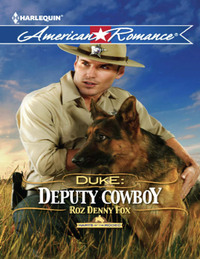
Полная версия
Annie's Neighborhood
For a split second Skylar felt uneasy. But then, after glancing at his watch, he gave a brief nod.
Annie left to climb her porch steps. At the door she turned and called out, “Hey, thanks for getting back as much stuff as you did. I doubted you’d make the effort. My apologies for misjudging you, Cordova.”
Sky nodded again, this time looking away. He hoped her apology was sincere. But if he went by past experience, it was entirely possible that she was trying to butter him up for some other reason. Not exactly an unfamiliar experience for him, since manipulation was a habit of his ex-wife’s, he thought irritably as he rapped on the Gilroys’ front door.
It took Sky twenty minutes or more to return the TVs and break away from the Gilroys’ and Missy Spurlock’s vociferous thanks. Almost wishing he’d turned down Annie Emerson’s invitation for a cold drink, he checked in with Koot, hoping for a minor crisis that would give him an excuse to leave. As bad luck would have it, the lieutenant said all was quiet in the precinct.
Returning his cell phone to its holder on a leather work belt weighed down with a nightstick, a stun gun, handcuffs and a Glock, Sky trudged up Annie’s steps. He saw several changes on the porch since his last visit. An old glider swing sported new cushions, as did four wicker chairs clustered around a glass-topped table. A pitcher filled with frosty lemonade sat there, along with two glasses. A shiny silver laptop rested on a sheet of paper Sky recognized as a plat map of Briar Run.
“How did the hoodlums miss stealing your laptop?” he asked, gesturing at it as Annie passed him a glass of lemonade.
“I had it in my rental car. I shouldn’t admit this to an officer of the law, but I caught up on work email at stoplights between here and the funeral home.” She gave him a wry smile.
Sky couldn’t help laughing as he took a seat. She was a contradiction—a warm, everyday homebody mixed with a sometimes tough, cool professional. It unsettled him that he might not be so anxious to see her leave town. “I guess you’re trying to calculate the worth of this house,” he said after a long swallow. He wiped his mouth with the back of his hand and pointed to the map. “Since you probably want to get back to L.A. quickly, my recommendation, as I said earlier, is to sell all the contents in one giant estate sale, and put the empty house in the hands of a reputable Realtor.”
“I, uh, phoned my supervisor in L.A. and tendered my resignation. I sublet my condo to a coworker who’s going to ship my clothing and personal items like photo albums, CDs, books...and a special quilt Gran made... Oh, you don’t care about that.”
Sky straightened. “Pardon me for calling you a bit foolish, but the job market here is one of the most depressed in the nation. Plus, I would’ve thought a break-in might have convinced you about the sorry state of this town’s general safety.”
Annie tapped the map with a forefinger. “Don’t you think it can be safe again? Do you know Briar Run was built before urban planning became a viable field? But it’s laid out beautifully in a series of spokes around the town center. It was probably designed as a bedroom community for Louisville to accommodate the growth that was expected because of the Kentucky Derby.”
“A bad calculation, since it was based on a once-a-year horse race,” Sky muttered. “Thoroughbred horse owners, the folks with money, live on high-value real estate situated well outside the city. Not only is horse racing a sport that relies on transient labor, anyplace with big-dollar betting attracts criminals.”
“You are cynical,” Annie said. “I wish you’d seen this neighborhood the way I remember it, the way it was when I was growing up here. People took pride in their homes and yards, and they derived joy from socializing with neighbors.” She moved the pitcher of lemonade and traced an area on the map. “There used to be manufacturing along our section of the Ohio River. Gran Ida worked for most of her life at one of the major lingerie-makers in the South. The owners sold the plant to a glove factory, which retooled and produced cotton and leather work gloves for export.”
“And now they’re gone,” Sky said quietly.
“I know, but the building isn’t. And a good-sized city park is a buffer between it and a residential area. South of the park are elementary, middle and high schools. When I was a kid, we all walked to school with friends. Briar Run was a great family town.”
“Manufacturing here is defunct.” Sky shrugged. “The park you remember so fondly has become a haven for drug pushers prowling for kids whose parents can’t afford to drive them to school. I recommend you take another look at it—but in daylight. My force is too small to patrol everywhere 24/7. I figured your neighbors might’ve told you that lots of good people who used to live here have moved away. Take my lieutenant. You met Koot Talmage earlier. Koot and his wife, Sadie, moved to a safer town when their third kid was still in elementary. Sadie used to teach at the local high school. Now there’s a forty percent dropout rate between middle grade and high school. Half the kids who do go on never graduate.”
“Well, shame on them. And shame on all of you. People in positions of authority who shirk responsibility for whatever reason feed problems like the ones that exist here. If no one fights back, soon it won’t be safe to live anywhere.”
“Oh, right,” he said, springing up. “I guess you’ve swept in from California and diagnosed all our problems.”
“I don’t know what you have against California or Californians, but it doesn’t take a rocket scientist to see that one major problem here is apathy. On the part of residents, business owners and public servants like you and your lieutenant. You’re like rats jumping off a sinking ship—you’ve written off this town. So has your city manager, who gave me the same song and dance the other day when I stopped in to ask if it was okay to hold a public meeting.”
Sky set his now-empty glass down on the section of map that outlined the park. “Those of us who work in the trenches aren’t apathetic, we’re realistic. That’s what we are.”
“You’re insinuating I’m not?”
“Look, all I know is that I’m doing my best to keep ahead of crime with a force that’s been slashed twice this past year.”
Annie got up, too, moved his glass and folded the map. “Fair enough. I understand that much of the bad stuff happening here is directed by criminals living outside Briar Run.”
“At least we agree on that.”
“Sort of.” She opened a small leather notebook. “I informally surveyed a few residents. I believe their spirits can be improved by something as simple as home facelifts, like the one I’ve begun. Fresh paint. Maybe new drapes. Some rosebushes and weeded yards. Those things take sweat equity.”
“And money. Paint isn’t free. That kind of cosmetic change won’t break the stranglehold gangs have on local teens. If you want to do something meaningful, get me the names of the gang leaders.”
Annie refilled their glasses as they faced off across the table. “Maybe the gang leaders will give up and move on if we create the kind of community where families want to live. Pleasant surroundings restore hope. Hope creates far-reaching results.”
“Perhaps that’s true in prosperous neighborhoods.” Sky drained his second glass. “Did any of the residents you talked to tell you how many hours a day they spend riding buses to Louisville and back to work minimum-wage jobs that barely put food on their tables? And those are the privileged few who actually found new jobs.”
“I haven’t totally gained their trust yet,” Annie admitted. “But I plan to. I’ll book a room at the library, and after setting a time and date, I’ll distribute flyers inviting everyone to a meeting. Then I’ll lay out my ideas in greater detail.”
“Good luck.” Sky handed her his glass. “Thanks for the drink. I need to get back to the job I’m being paid to do.”
“I’d hoped I could enlist your support.”
He clattered down the steps and strode along the walkway without so much as a backward glance.
Annie was fairly sure he’d heard her. She sighed as she collected the pitcher, glasses and her notebook, and carried them into the house. What if Skylar Cordova was right? What if she and Gran Ida were wrong about her ability to help revitalize this neighborhood?
* * *
SKY WENT BACK to the office. He called the pawnbroker to let him know he’d found the owner of the silverware. Afterward, he made up the work schedule for the following week. Aaron Loomis, the city manager, wouldn’t let him authorize any overtime for his staff, which meant Sky had to take up the slack if any of his men needed a day off. When he posted the shifts to his calendar, he saw he had a dinner at Koot and Sadie’s tonight. That was good. His pantry was bare, plus Sadie was a great cook. With nice weather, maybe they’d have a barbecue. And if the Talmage sons were there, the four guys could shoot hoops for a while. Sky could use a workout.
He’d just shut down his computer when the dispatcher notified him that a call had come in from a drugstore—a possible domestic dispute in their parking lot. Those had the potential of being especially difficult—and dangerous. Heading out, Sky called Teddy Saunders, his youngest officer, as backup. At six-three, two hundred and eighty pounds, Saunders often just had to show up and perpetrators got scared enough to beg for mercy.
Sky arrived at the altercation first and encountered a couple he’d been called out on before. Roger McBride reportedly had a problem with alcohol, and his wife, Loretta, had a problem with the amount of money Roger wasted on liquor. In the past there hadn’t been any violence, so Sky canceled his call for backup.
Parking his cruiser a safe distance away from the arguing pair, Sky walked toward them and deduced that their spat was the same old thing. Loretta was outside Roger’s car shouting at her husband, who sat behind the wheel.
“Loretta,” Sky said evenly. “Roger.” Sky nodded at the man. “Is Roger too drunk to drive?” That question he aimed at the woman.
“Not yet, but I just went to the bank with my pay and checked to see that his unemployment funds had come into our account. Who did I pass as I left the bank but this lazy bum on his way to spend money we don’t have on Irish whiskey.”
Roger glanced away, but not before Sky saw his unshaven jaw tense. “I only bought a pint,” the man said. “Chief, don’t I have the right to some of the money from my unemployment? This week I filled out four new job applications. I quit going to the tavern. Since Loretta got on me, for not doing anything around the house, I’ve taken over all the chores. No matter what I do, she wants more. It’s humiliating enough for a guy like me to let my wife be the family breadwinner.”
Sky pinched the bridge of his nose. Man, where was the curb-appeal fairy who thought she could set local folks’ world right with curtains and paint? He’d love to hear Annie Emerson’s solution for this.
“Loretta, is Roger doing better?”
“I suppose.” She plucked at the collar of her blouse with a work-roughened hand. Sky knew the couple was in their late fifties. Loretta worked at a fast-food restaurant. Roger used to be a production manager at the glove factory. Sky had heard the same kind of hard-luck story from a host of others in town.
“You’re the one I’d have to charge with disorderly conduct today,” he told Loretta.
“Don’t do that,” Roger broke in. “All she’s guilty of is trying to pound some sense into my stubborn head. I’ll return the pint.” He grabbed the sack and got out of the car.
Sky and Loretta watched him jog back into the store. “I’m sorry,” she said. “I shouldn’t have made a scene, but my boss said today they may have to cut everybody’s hours. I saw Rog headed for the store to get booze, and something snapped.”
“It’s okay. No harm done. I’m sorry life’s so rough. If I hear of any work I think Roger can do, I’ll call.”
“Come by the house,” she said meekly. “We had to let them shut our phone off.”
“I’m sorry.” Sky caught himself saying that a lot lately. The more trouble that was heaped on the heads of people in his jurisdiction, the more painkillers he took. He climbed into this car to scribble out an incident report and dug out a bottle he kept in the glove compartment, then shook out two pills and swallowed them dry. He hadn’t quite finished his report when a call came in from the principal at the middle school. A fifth grader had been found with marijuana in his book bag.
Sky left the convenience store and drove four blocks to the school. He remembered getting in trouble once for taking a garden snake to school. It wasn’t just that he’d taken the snake to class, but he’d put it in Julie Clark’s backpack. Sky couldn’t fathom what kind of mischief kids would be up to by the time his five-year-old son reached middle school. He hoped he’d have some say in guiding Zack through those awkward years. He wouldn’t if it was up to Corrine.
During the school year so far, Sky had sat down with this principal more often than either of them would’ve liked. “I don’t know what to tell you, Chief Cordova,” Mrs. Beckerman said. “Billy Joe Wright swears he was set up.”
Sky watched the scared kid who sat in the principal’s waiting room. He was fair-haired and well-dressed. He didn’t have on the oversize, low-slung jeans that seemed to be the gangbanger dress code. “What are his grades like? Have they slipped lately?” Sky asked.
The principal accessed the boy’s record on her computer. “He’s a surprisingly good student. I hate to admit it, but that’s why I know so little about him. It’s terrible that my days are spent getting to know all the children at the opposite end of the academic spectrum.” She handed Sky the plastic Baggie filled with leaves. “But there is the fact that this fell out of his book bag in algebra class.”
Sky opened a corner of the bag, sniffed, then made a wry face before sealing it again. “Potent weed,” he said, coughing. “It’s worth some bucks. Could be someone’s bullying him, or else somebody’s been coerced by a dealer up the chain to try and get him involved.”
The principal closed the boy’s record. “I’ll talk to his mother. He said his dad’s out of town on business. That could mean anything. It may mean he’s in jail. If our counselor can handle one more case, I’ll refer him and I’ll sign a release for you to confiscate the bag. For now I’m inclined to give Billy a pass, but I’ll try to keep him under surveillance.”
All too familiar with the drill from past confiscations, Sky had come prepared with a notebook of release forms. Extracting one, he set it on her desk, and she signed it with a flourish.
Borrowing her stapler, Sky stapled the bag to the form. Mrs. Beckerman photocopied it, bag and all. “I hope I don’t have to call you in again before school lets out for the summer. Not that I envy you having so many potential delinquents turned loose on the community for three months. I should warn you, the district cut all summer programs.”
“Gr...eat.” He sighed heavily. “Don’t they realize it leaves the schools at risk for vandalism?”
She shrugged. “They claim they’ve wrung every possible penny out of the budget just to hire teachers for enough hours so our seniors can graduate.”
“Thanks for the heads-up, Mrs. Beckerman. I’ll see if I can arrange our schedules to include driving by the three schools several times a day.”
“Do that. I’ll pray for an angel to swoop down and keep our facilities protected.”
Sky took his leave, fearing it was going to be a long summer. The news about no summer school felt like one more nail driven into the coffin of this dying town.
* * *
LATER, AFTER HE wound up his day, he went home, showered and changed out of his uniform before traveling eight miles to the town where Koot lived. Sky stopped at a flower shop and bought a potted plant as a hostess gift for Sadie Talmage. He knew she liked flowers. Continuing into the residential district, Sky couldn’t help comparing these clean streets, well-tended lawns and inviting homes with those in his run-down community. He’d been to the Talmage home several times, but it struck him now that if he hadn’t had a touchy encounter with Annie Emerson today, he wouldn’t be making comparisons.
The safety of residents in his town was his first concern, not how the houses looked to passersby. Yet, Koot, a thirty-year veteran cop, had moved his family because he deemed this town far safer than Briar Run.
When Sky was hired as police chief, the city had a rule stating that its employees, especially police and fire, had to reside within city limits. Sky wasn’t sure if they’d relaxed the rules for Koot, who was a fixture on the force and due to retire soon, or if the city manager wasn’t aware he’d moved.
The main question still ricocheted inside Sky’s head—was there truth to Annie’s assertion that spiffing up the neighborhood would translate into safety? Sky hated to think that his reluctance to take her seriously could lie with the fact that she’d laid him out in her front yard, thereby threatening his masculinity. Preferring to put that incident and the woman out of his mind, Sky was glad to arrive at his destination.
* * *
SADIE ANSWERED HIS knock. She enveloped him in a hug, which was her way of greeting everyone. “Why thank you, sugar,” she drawled when he gave her the plant. “Koot, are you too old to learn some manners from your younger boss?” she said with a laugh when her husband walked up behind her. She kissed his cheek to take away the sting of her rebuke as she showed off her gift. Koot flung an arm around her shoulders. His brown eyes twinkled as he feigned being stabbed in the heart by Sky, who grinned and followed his hosts through the kitchen and out to the back patio, where an outdoor table was already set. He felt the cares of the day recede. His friends had the kind of marriage he wished his had been.
“Grab a chair,” Koot said, picking up a platter and a spatula.
Sadie handed Sky a chilled bottle of light beer and set one each in front of her husband’s plates and hers.
“Prepare to eat the best pulled-pork sandwiches you’ve ever tasted,” Koot called over his shoulder. He opened the lid on the barbecue and the scent of spices made Sky’s mouth water.
“No kids tonight?” Sky asked when Sadie moved a tray of condiments to make room on the table for a green salad.
“Marcus is coaching a junior baseball team at the boys’ club,” Koot said, returning to the table with a platter of buns, piled high with meat oozing a tangy-smelling sauce.
Sadie used tongs to set a sandwich on Sky’s plate. “Sam is helping his sister study for her bar exams. Poor Sam, he wishes he’d stayed in college instead of dropping out to get married. His job as a hospital orderly just pays the bills.”
“He could go back and finish his degree,” Koot said, whipping open his napkin.
Sadie defended their middle son. “It’s almost impossible with two kids, and tuition fees climbing.”
“I was lucky to finish college with some help from ROTC. Then I went straight into the police academy before getting called to active army duty,” Sky said. “A lot of guys I met overseas hoped they could attend college after their tours,” he added. “If they already had a family, it’d mean sacrifice. Maybe Sam will go back, though, if Koot keeps after him.”
“I could have helped him out financially if I’d continued teaching.” Sadie dished out salad and passed around dressings.
“You didn’t need the hassle.” Koot turned to Sky. “It got to where she was trying to teach kids who didn’t care. You know how many times we get called to that high school. I wanted her and Diandra out of there.”
“I picked up a packet of pretty high-grade weed at the middle school today.”
“Middle school? Dang.” Koot shook his graying head. “Can our job get any tougher?”
“Which reminds me. Apparently the school board voted to defund summer school. We’ll have to be extra vigilant about keeping watch on the buildings.”
Koot rolled his eyes. “Like that’s gonna be easy. If it didn’t affect my pension, I’d retire tomorrow.”
Sadie patted his hand. “Do it if you want.”
“Don’t you dare,” Sky put in. “Guaranteed our city manager won’t replace you.”
“It’s a shame everything’s gotten so bad in Briar Run,” Sadie said. “It’s never made sense to me how things began to slide, and then one downward trend led to another. You may not believe this, Sky, but Briar Run used to be as nice as this town. What you need to do is find a miracle worker—preferably a volunteer.”
“An army of them,” Koot flung out. Sky mulled over Sadie’s comment, which led back to his earlier thoughts about Annie Emerson. “Do you think one person could start a movement capable of turning a whole town around?”
Koot was quick to say no. Sadie seemed more willing to explore the possibility. “Briar Run didn’t fall into decline overnight. We stuck it out for a long time. What happened was like a row of dominos. The first one that toppled was economic. The factory closed, and that affected the livelihoods of more than half the workers in town. One by one more dominoes fell. No job, no money. No money, fewer taxes paid. Fewer taxes, fewer city services, and so on and so on. You get the picture.” She rose and collected their plates. “I’m going to the kitchen to get our dessert.”
“Briar Run is in a hopeless spiral,” Koot said after Sadie left. “I’m sorry you bought a house there, Sky. I know you took the job because it’s near your ex. Unfortunately, conditions in Briar Run are so degraded, her lawyers can legitimately harangue you. The best hope you have is to keep sending out résumés for any comparable job in a forty-mile radius of your ex and her new hubby’s horse farm. Ah, chocolate pie,” he exclaimed as Sadie returned. “My favorite. Let’s find a happier topic, so as not to give ourselves heartburn.”
Sadie cut each man a generous slice of pie.
Sky continued to worry the subject the others had dropped. “If I understand you right, Sadie, are you saying that if people do stuff like painting the exterior of our houses, new landscaping, making the outside more appealing, it won’t significantly improve their outlook? The city still lacks the economic development necessary to make folks less poor but wouldn’t this make a difference?”
She gave a shrug. “Yes and no. I’ve long been interested in the effect housing design has on alleviating poverty. After I left teaching, I took design classes at the community college. One thing we learned is that housing developments with homeowner associations that have strict rules for keeping up homes and yards have happier, healthier residents. But...they still need funding.”
Using the tines of his fork, Sky made a crater in the whipped-cream topping of his pie. “So...say, somebody got us all to gussie up our houses and maybe redo the park. Would that be enough to put a dent in crime? Will it encourage residents to get out and about?”
“Sounds like you wish a fairy godmother would wave her magic wand and turn Briar Run into utopia.” Koot tipped back his head and roared with laughter. “Dream on, my man. Dream on.”
Sky flinched. “Yeah, I see how the whole notion seems silly.”
As the trio polished off their pie in silence, Sky thought how ironic it was that he’d mentally tagged Annie Emerson the “curb-appeal fairy.” She would have to work magic, he realized, to accomplish even a tenth of the grandiose ideas she’d outlined.
Конец ознакомительного фрагмента.
Текст предоставлен ООО «ЛитРес».
Прочитайте эту книгу целиком, купив полную легальную версию на ЛитРес.
Безопасно оплатить книгу можно банковской картой Visa, MasterCard, Maestro, со счета мобильного телефона, с платежного терминала, в салоне МТС или Связной, через PayPal, WebMoney, Яндекс.Деньги, QIWI Кошелек, бонусными картами или другим удобным Вам способом.














